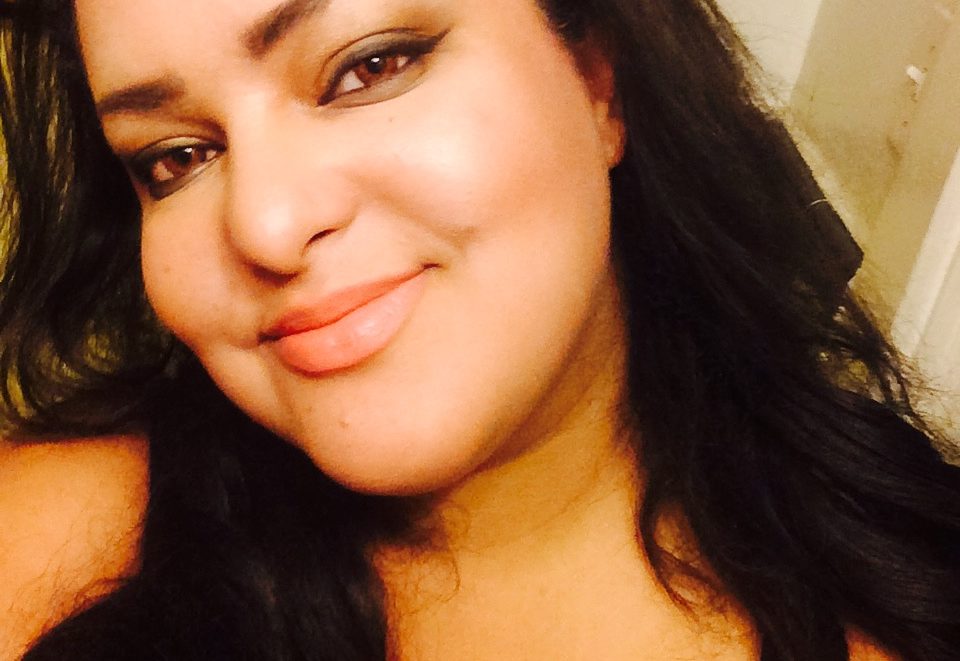
Interview by Jessica Johns
Hello, friends. Meet Adebe DeRango-Adem, a doctoral candidate in English at the University of Pennsylvania and author of two full-length poetry collections: Ex Nihilo, nominated for the prestigious Dylan Thomas Prize and Terra Incognita, which was a finalist for the 2015 Pat Lowther award. Her newest poetry collection is forthcoming from Mansfield Press. After reading Selina Boan’s Get to Know with Liz Howard, Adebe reached out and introduced herself. After reading some of her work online (her WordPress site is astounding), I asked if she’d like to be a part of the series.
Unsurprisingly, I was just as happy to read her Get to Know responses as I was her work. As soon as she mentioned living in a liminal space (with PRISM’s Liminal issue still fresh in my mind and heart), Leonard Cohen, and that emerging writers’ words matter, I knew she came into my life for a reason. I urge anyone looking to feel inspired and moved to read more of her work.
1. What’s happening around you—either right around you or outside of where you are?
It is a snowy morning in northern Toronto, where I work, and not too far from where I reside. I have never been able to resist the beauty of snow on leafless trees. The grace with which the snow falls seems to be teaching me a lesson. Students are rushing into doorways for lesson learning, too. I tend to thrive in places where there is a collegial spirit, where you can feel a palpable desire to learn.
2. Why do you live where you live?
I have two homes, one in Toronto and one in Philadelphia. Often I ask myself the very same question, as living in a liminal space (literally, and not just metaphorically) has its challenges. I live in between these geographies, positioned by both my origins and future plans—the latter being to complete graduate studies. Kerouac would be proud with my life “on the road,” as it were. And I think it’s important to impress your literary predecessors.
3. Is there a public space you’re fond of? Describe it.
The New York Public Library is one of the few places where I can appreciate being in a crowd, because the number of books outnumbers anything else, and I can stare at the ceiling for hours.
4. What’s your morning routine?
I wake up to the smell of Italian espresso most mornings and spend the first twenty minutes adjusting my spiritual frequency to the world. To read the full version of my routine, click here. I think my routine is way more interesting than Ivanka Trump’s… just saying.
5. What are you looking forward to this week?
Admiring houses lit in shades of red, green, and blue. Dreaming of fjords at the Viking exhibit. Dreaming of Vikings in general.
6. Do you have a favourite word? Or a least favourite word? What is it and why do you like/dislike it?
I am not a fan of “awesome.” There are so many other words to use to describe such a sentiment—incredulous, prolific, sublime. Now that I think of it, sublime is a pretty great word, I should use it more often. I also love the word “genesis.”
7. Do you have any “vices”? What’s the relationship between your vices and your writing?
“What is a vice—any vice—but the overwhelming of reason and conscience by an anarchy of passion?” Jean-Jacques Rousseau.
8. What’s the first story or poem you remember writing, and how does it relate to your current work?
I remember reading Leonard Cohen’s Let Us Compare Mythologies as an adolescent and suddenly something breaking open in my chest/heart. I think my heart actually broke from reading his beauteous language. I would like to think that my best work should break hearts in the most therapeutic way possible. Breakdown as breakthrough, that sort of thing.
9. What are you most proud of?
From a literary perspective, I achieved my goal of publishing three poetry books before 30, though ultimately pride is an inside job.
10. Is there any advice you like ignoring?
“Just be yourself.” There are tricksters and shamans in my family. I exist as a multiplicity. I can be whatever I want, for who I am is always changing.
11. What advice would you give a young writer?
Moments of creative “eureka,” fleeting encounters with the divine muse, or even the joys of finding communion with other writers who “get” your work, may not counteract the larger pain of feeling lost in a world bombarded by injustice. You may legitimately feel like you’re in the dark… though such is an invitation for your writing to be the light. Know that your words matter.
12. What’s one risk you’re glad you took?
If calling yourself a poet isn’t a risk then I’m not sure what is.
Are you or someone you know interested in being a part of our Get to Know series? Get in touch with us! We love finding out about new and emerging writers, community members, or artists.